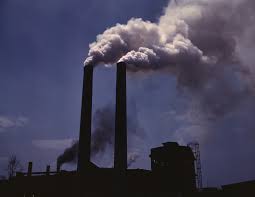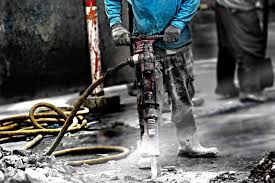Meaning of Pollution, Primary and Secondary Effects of Pollution
Pollution of the environment is one of the most horrible ecological crises the world is subjected to, today. The environment (Air, Land or Soil and Water) were in the past pure, virgin, undisturbed, uncontaminated and basically most hospitable for living organisms but the situation is just the reverse today.
This is however largely due to innovations in science and technology leading to pollution of the environment and serious ecological imbalance which in the long run, may prove disastrous for mankind.
Environmental pollution is the result of Urban-Industrial technological revolution and speedy exploitation of resources by man.
As the craze of progress in agriculture, industry, transportation and technology are taken as the general criteria for any nations; these activities have created adverse effects on all living organisms in the biosphere.
Rapid industrialization has left in its wake polluted air, water and soil, depleted wildlife and exhausted natural resources.
Definition of Pollution
A number of definitions have been proffered in explaining what pollution is. These include:
Pollution is the unfavourable alteration of our environment because of human activities,
It is the deliberate or accidental contamination of the environment.
It is a deviation from the natural composition of a part of the environment, resulting in adverse effects on man.
It is an undesirable change in physical, chemical or biological characteristics of water, air and soil that may harmfully affect human, animal and plant life, industrial progress, living conditions and cultural assets.

Pollution is also viewed as the release of substances and energy as waste product of human activities which results in harmful changes within the natural environment.
Read Also : Application of Biotechnology to Air and Water Pollution Control
Modern ecologists however points out that there are various factors such as human population explosion, rapid industrialization, deforestation, unplanned urbanization, scientific and technological advancement etc are mainly responsible for the pollution crises on earth.
Primary and Secondary Effects of Pollution
The effects of pollutants may be immediate or delayed.
Primary Effects of Pollution
Primary effects of pollution occur immediately after contamination occurs, such as the death of marine plants and wildlife after an oil spill at sea.
Secondary Effects of Pollution
Secondary effects may be delayed or may persist in the environment into the future, perhaps going unnoticed for many years. DDT, a non- degradable compound, seldom poisons birds immediately, but gradually accumulates in their bodies.
Birds with high concentrations of this pesticide lay thin-shelled eggs that fail to hatch or produces deformed offspring.
These secondary effects, threatened the survival of species such as the bald eagle and peregrine falcon, and aroused public concern over the hidden effects of non-degradable chemical compounds.
In summary, pollution, contamination of Earth’s environment with materials that interfere with human health, the quality of life, or the natural functioning of ecosystems (living organisms and their physical surroundings).
Although some environmental pollution is as a result of natural causes such as volcanic eruptions, most is caused by human activities.
Environmental pollution is one of the most horrible ecological crises the world is subjected today. The greatest challenges caused by air pollution is global warming
Sewage, industrial wastes, and agricultural chemicals such as fertilizers and pesticides are the main causes of water pollution
Soil pollution is a buildup of toxic chemical compounds, salts, pathogens (disease-causing organisms), or radioactive materials that can affect plant and animal life. Ecosystem functions may be impaired or destroyed by pollution.




